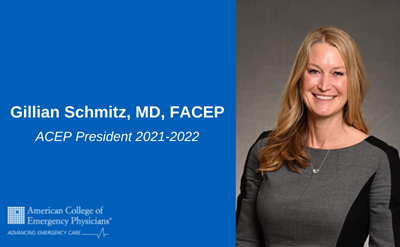WASHINGTON, D.C.—The American College of Emergency Physicians (ACEP) strongly supports efforts in Congress to advance and pass the Mainstreaming Addiction Treatment (MAT) Act (H.R. 1384/S. 445), legislation that improves emergency physicians’ ability to treat opioid use disorder.
“The MAT Act takes important steps to clear federal hurdles that impede patient access to buprenorphine, an effective treatment for opioid use disorder,” said Gillian Schmitz, MD, FACEP, president of ACEP. “Emergency physicians are calling on Congress to act swiftly so that health care professionals on the frontlines have more opportunities to treat and prevent opioid-related emergencies.”
Last year, more than 100,000 Americans died of a drug overdose, a record high, according to the Centers for Disease Control and Prevention (CDC). Limited access to treatment, stigma, and outdated laws continue to impede access to proven treatments such as buprenorphine as part of medication-assisted treatment (MAT). Initiating treatment with buprenorphine in the emergency department significantly cuts the risk of overdose death, reduces illicit opioid use and infectious disease transmission, and helps individuals stay in treatment.
“An emergency physician is often a patient’s first and best chance for care in an opioid-related emergency,” said Dr. Schmitz. “These are chances to help people that we cannot afford to miss. The sooner treatment for overdose or substance use disorder is started, the easier it is to put patients on the path to successful recovery.”
Still, significant barriers to the use of buprenorphine persist, including the “X-waiver,” a requirement for physicians which is not required for prescribing any other medication, and registration with the Drug Enforcement Administration for this waiver, which can take several months. The bipartisan and bicameral MAT Act removes the federal requirement for a separate waiver to dispense buprenorphine.
“The X-waiver is a hurdle that makes it harder for patients to get a medication that’s proven to help them,” said Dr. Schmitz. “Emergency physicians are hopeful that Congress will pass this bill to improve access to lifesaving care and continue the fight against our nation’s opioid crisis.”
 American College of Emergency Physicians
American College of Emergency Physicians







